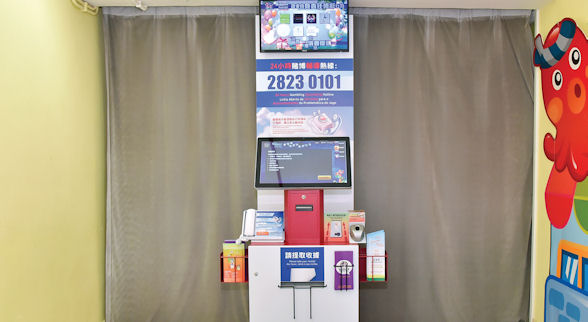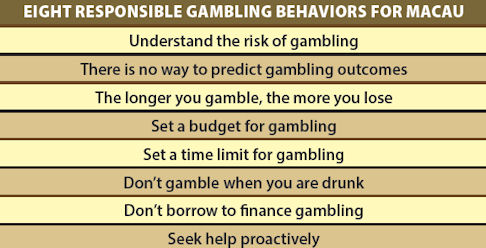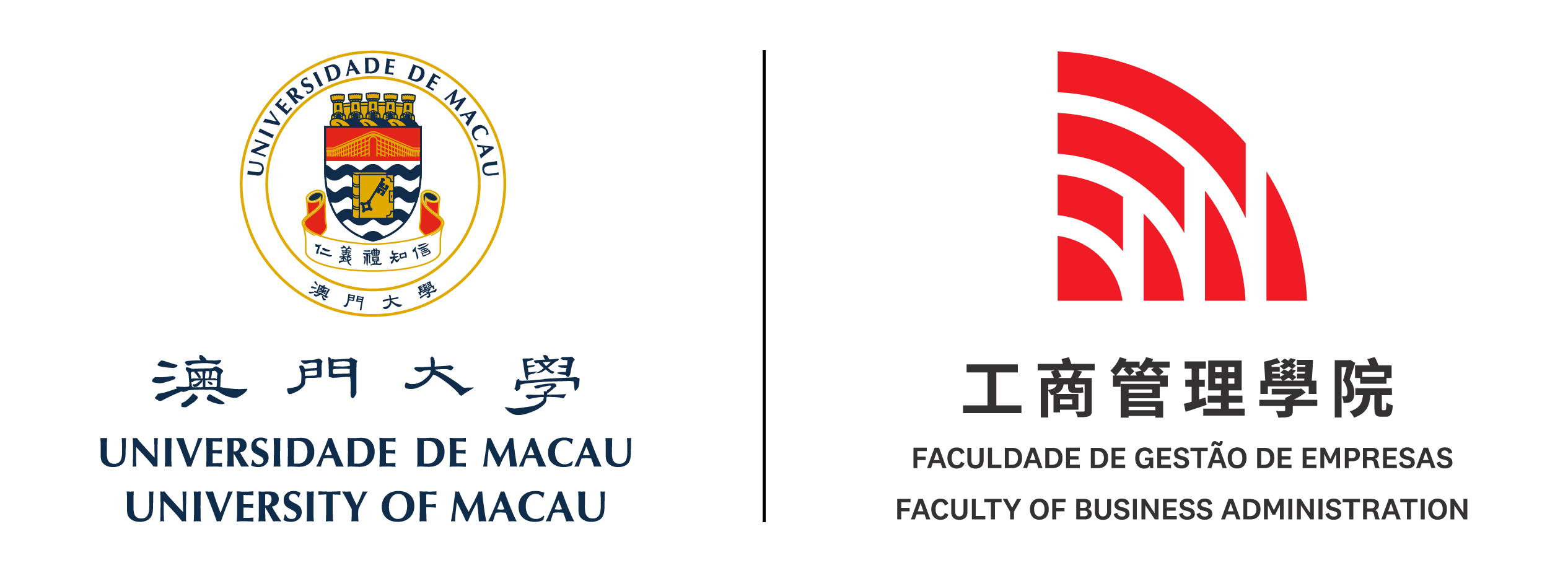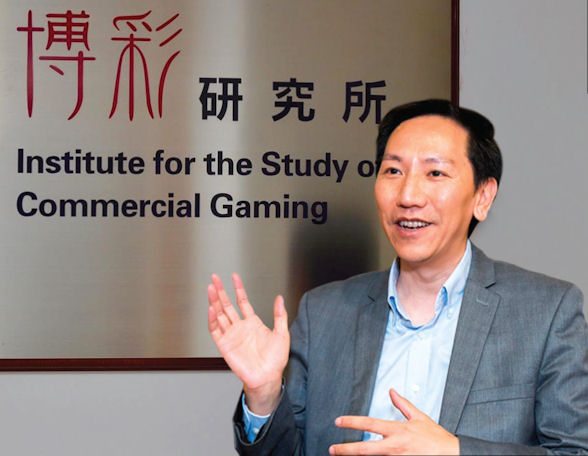來源:環球博彩
Even before Sands signalled the arrival of the new Macau in 2004, Dr Davis Fong was promoting the all-important message of responsible gambling. As Director of the Institute for the Study of Commercial Gaming (ISCG) at the University of Macau, Fong and his team are in charge of advising the government on everything from the causes and prevalence of problem gambling in Macau to recommended treatments and promoting the responsible gambling concept as a whole. In the first of a series of responsible gambling articles to appear inWGM, our CEO Andrew W Scott sat down with Dr Fong to learn more.
Andrew W Scott: Thanks for talking to us, Davis, about the extremely important topic of responsible gambling. First of all, can you tell us exactly what responsible gambling is?
Davis Fong: Responsible gambling is a term that has changed over time. The first study we conducted back in 2007, we started with some of the concepts used in Canada, Australia and the United States. At that time we understood the concept of responsible gambling in the United States basically focused on the individual. It was an initiative by the casino operators and they grouped together to take care of the negative impact of gambling. They proposed the industry have a code of conduct that all the members of the American Gaming Association should follow so that they would just focus on the behavior of the gambler.
At that time, the term “responsible gambling” meant responsible gambling behavior in the United States. However, when we went through the concept in Canada and Australia it was a little bit different – especially in Australia where they focused on a few more things.
First was service responsibility. This means that not just the gambler but also the stakeholder should take responsibility to stop the problem.

Second was harm minimization which is the same concept as in consumerism. When a shopper goes into the supermarket, they need to look at the label and the information provided and the operator needs to provide sufficient and correct information so the consumer can decide whether or not to buy it. So the concept comes from consumer protection. Harm minimization means an informed choice decision so that the harm associated with gambling will be minimized.
Last but not least is having a regulated environment because no matter how much we can do for the gamblers, if we don’t have a regulated environment it can be harmful for the gambler. So putting all of that together, it means under a properly regulated environment the gambler can make an informed decision and at the end of the day the harm will be minimized and the harm to others associated with gambling will be minimized too. This is the definition of responsible gambling.
That was our starting point but when we looked at how to apply this to Macau society, we learned that aside from casino operators, the government and the gambler we needed to introduce two more stakeholders. One was education parties such as universities and schools to educate on the proper sense of value. The other was treatment and prevention centers because Macau is an “association society” with a lot of associations. If we were to implement a very effective policy we needed to borrow the power as well as the networks of the associations to help us promote.
That’s why at the very beginning when we looked at how to introduce the responsible gambling concept in Macau we developed the five stakeholders model. That’s what we call the “Macau responsible gambling model”.
AWS: Adapting the model to Macau society was obviously an important step, but a huge percentage of those gambling in Macau come from Mainland China. As we know, the average length of their stay is around 1.4 days. How do you go about identifying and getting the message across to these Mainland Chinese gamblers?
DF: We separate the local market and the tourist market. For the local market it’s quite easy for us to understand because we adopt the methodology commonly used worldwide. We used the DSM-4 (Diagnostic and Statistical Manual of Mental Disorders) and since 2013 we have used the DSM-5. Based on the DSM-4 there are 10 questions – basically 10 symptoms. If someone commits five or more of them they can be categorized as a probable pathological gambler.

We conducted the first study in Macau in 2003 which was an interesting year because as we know, Sands became the first casino to open in 2004 after liberalization. So 2003 was the old Macau and at that time our survey, around 1,000 samples via telephone call, revealed 1.8 percent of the local people aged from 15 to 64 could be categorized as probable pathological gamblers.
In 2007, 2010 and 2013 we conducted the same study. In 2007 the prevalence increased from1.8 percent to 2.6 percent, in 2010 it increased again to 2.8 percent but then in 2013 it dramatically dropped to 0.9 percent. This was very interesting to see it drop so significantly and begged the question – what happened between 2010 and 2013? Was it because the government adopted our recommendations since 2009? Working with the University of Macau, in that time the DICJ and the Social Welfare Bureau started to promote responsible gambling. So it is now six years since that started.
At the very beginning, not too many people accepted the concept of responsible gambling. When we started promoting it in 2009, some members of the Legislative Assembly questioned whether we were promoting responsible gambling or just gambling itself! They considered gambling to be irrational so how could it link together with being responsible?
We also understood it was difficult for the local Macau society to accept this concept so that’s why we took almost a year just to persuade them. We just promoted the “concept”, the name.
Then, starting in the second year, we added a topic or a theme each year so gradually Macau society accepted it. We use guiding principals to help us implement responsible gambling. One of those is best practice. Whatever we promote, we will have research follow up the effectiveness of the message. So the program we conducted in 2009 – before the promotion and after the promotion – we asked local people things like how much they understood problem gambling and had they heard about responsible gambling? Could they tell us the behavior of a responsible gambler? A lot of questions. Finally, we compared year by year and eventually we had some findings!

A responsible gambling information kiosk
Number one and the most outstanding for me was that the awareness of problem gambling increased from 16 percent in 2009 to 60 percent at this moment. I think this is outstanding. They’ve received this message.
However, studying from 2013 we understand that although awareness is high, knowledge itself is still very weak. So we changed our strategy from just awareness to helping them understand responsible gambling in-depth.
AWS: So how do you go about doing that?
DF: Well the question was, “How can we let half a million people have a very good knowledge of problem gambling, responsible gambling and gaming behavior in general?” We thought about it and decided to use a competition. Last year was the first test. We made an app which contained about 250 questions. People could download the app and play a Q&A game. Because everyone has a smart phone these days we thought this would be a good way to let people have fun with it, understand it and then learn it.
We also hope that in the future, those people who enter the casino – even employees before they start work as a dealer – will be trained in responsible gambling so now we urge the operators when they hire someone to have them download the app so they understand the 250 questions about the gaming industry and gambling behavior.
AWS: And is the app multi-lingual?
DF: Unfortunately it is only written in Chinese at the moment but that will change! The questions are based on Gaming Law 16/2001. It has questions such as, “What age can you enter a casino?” They are multiple choice. There are a lot of law and gaming questions. Others can be things like, “Which game has the highest house advantage?” or “If you commit illegal gambling, what’s the maximum sentence?”
We hope the English will be ready next year, but last year was only a trial so we had only a few hundred downloads. This year we hope to have thousands. Starting from the last week of September we will have a lucky draw over 10 weeks with the prize being an iMac each week. Hopefully we can encourage people to download it.

AWS: As Director of the Institute for the Study of Commercial Gaming (ISCG) at the University of Macau, you’ve become the face of responsible gambling in Macau. The ISCG is within the university but it’s actually a research organization, not a teaching organization. How did you become the person leading the responsible gambling effort here in Macau?
DF: It’s very interesting because at the beginning we were just acting as a think tank for the government. That’s why the ISCG was set up in 2003. Since then we’ve done some research for the government – at this time around 25 or 30 papers for the government.
In 2007 we conducted some very important research called Responsible Gambling Policy research which we submitted to the government and after some time the Chief Executive accepted our idea to promote responsible gambling in Macau. It was because of his leadership.
Also, the DICJ and Social Welfare Bureau have worked with us together because in greater China, the Chinese community, there is no experience at all in promoting the meaning of responsible gambling. No-one knows about it. So as a think tank we contributed our knowledge and understanding about how people get addicted to gambling.
Obviously at the beginning we didn’t actually know how people became addicted to gambling. We were starting from nothing other than the experiences of Australia and Canada. That’s why we paid a visit to those countries to observe. We had meetings with government officials there to exchange ideas on how to promote it and what the experience was there. From there we tried to model the concept but modify it with local content.

I’ll give you an example. In Australia, they always promote, “Please don’t gamble when you are drunk”, however in the Macau community there is less need to do that. They drink tea or coffee instead to make themselves more excited. There are cultural differences, so we developed eight responsible gambling behaviors.
AWS: How many organizations are here in Macau to help people who get into trouble gambling?
DF: We have four operators. They are Sheng Kung Hui Gambling Counselling and Family Wellness Centre which is very important because they have a 24-hour gambling counselling hotline, Yat On Responsible Gambling Counselling Centre, The Macao Industrial Evangelistic Fellowship and the Macao Gaming Employees Home although they have transferred their cases to the government.
AWS: Let’s ask about people from Mainland China. What do you do to help them?
DF: First of all, can we say that those big gamblers are problem gamblers? No. Suppose a big gambler is gambling HK$1 million but the guy only comes to Macau once a year. We can’t say he is a problem gambler. From a psychology point of view, from an academic point of view, there must be current symptoms and very serious symptoms for us to categorize them as pathological gamblers. So the first point is that when people say those who are gambling in Macau, especially the people in the VIP rooms, are problem gamblers, that’s the wrong perception.
Those people who can’t control their gambling behavior, my understanding is that they must visit Macau at least once a week. For those people who get addicted, it’s notable if they can’t control themselves within a week. They need to gamble at least once a week.
But how many people in Mainland China have a visa that lets them travel to Macau once a week? Maybe they live in Zhuhai or maybe they are a businessman with a business visa, but that means the starting percentage suddenly becomes very small. From the 31 million who come to Macau each year, maybe 100,000 of them? I don’t know the exact number of people who have multiple entry visas. The question then is, if it happens and these people get addicted to gambling, how can we help?

The Smart Teens program in 2010 was aimed at Macau youth aged between 12 and 29 to enhance participants’ awareness of problem gambling
The first is exclusion. Since 2012 we’ve had an exclusion program where gamblers from the Mainland can report to the DICJ and exclude themselves. That works if you need some external forces to help you stop gambling.
Second is treatment. All four treatment centres provide a free service for treatment. I understand with the Macao Industrial Evangelistic Fellowship, there are some cases in Zhuhai where they provide cross-border treatment services, although not too many. They must be a very important person. But the organisation will go into Zhuhai to visit them. These treatment centres are free of charge.
The third is our responsible gambling information kiosks. Probably by the first quarter of next year we will have the most updated version of the responsible gambling kiosks out there and they provide online applications for exclusion. You just show your passport, put it on the scanner and all the information will go directly to the DICJ.
At this moment we have 12 information kiosks, at the end of the year we will have 18 and next year there will be six more. Eventually every casino will have one.
AWS: I’ve seen those kiosks around. Do many people use them?
DF: Up to this moment around 27,000 people have used them since the end of 2012. Some kiosks have more frequency than others. Some of the kiosks are at casinos and some are in the community including the Macau Jockey Club so that we can increase the utilization.
When someone uses the kiosk, it starts with two options – to log in as a tourist or to log in as a local. Once they choose their option the story begins so we can understand whether they are tourists or locals. The findings from that are interesting. For those kiosks located at a casino, 70 percent of the people using them are tourists, but if they’re located in the community 70 percent are locals. So we’re providing a balance by having them in different sorts of locations.
AWS: What other initiatives can we expect?
DF: There is already some movement. There has been a problem with people who get addicted from Mainland China but the family member won’t let them go to Macau for treatment because they don’t know if they are actually going there to gamble! So we use telephone or we use online. We have an internet based treatment service. We also have telephone based treatment 24 hours a day so that you can make a phone call even in Beijing.
You call the hotline and it provides a treatment service. This is quite a new movement. We’ve had almost 2,000 people call in the first six months of the year.
AWS: Based on the numbers you’ve mentioned, we can calculate there are around 5,000 people in Macau who can be categorized as probable problem gamblers. How many of those are seeking treatment?
DF: I can say that 1 percent would seek treatment. It’s about 50 a year.
AWS: So that obviously leaves a lot of people who aren’t seeking treatment. How do you go about helping the others?
DF: Well first of all we need to understand which percentage of society categorized as probable problem gamblers should be the norm – the normal situation. This means that even without responsible gambling promotion, that percentage should be the norm within regular society. Harvard University did a study in the United States in the last 30 years that showed the norm should be ranged between 0.5 percent and 1 percent. This means that if Macau is in the norm internationally, it should be within that range. Two, for those people who get addicted to gambling behavior, research shows there is something called natural recovery. These are cases whereby maybe because of a relationship – a message from the girlfriend or the boss – the person gets the message and quits gambling. If this is true, it means the more we promote responsible gambling, the more of a positive message we share among the community. Hopefully a group of people not receiving treatment might then give up. This is very important too because if we are significantly higher than the norm, something is wrong, but we’re not so Macau is in the right shape at the moment.
AWS: That’s pretty good considering this is the biggest casino city in the world. You would expect the level of problem gambling in Macau to be higher than in most places in the world given the availability of casino gambling?
DF: Yes but the risk is coming because of the new casinos opening. We call it accessibility. If we increase accessibility, the chances are higher that people will become addicted. That’s why the Macau government is working with us, looking at the future with the understanding that we have to do something beforehand rather than being reactive.


